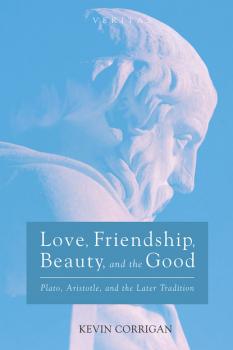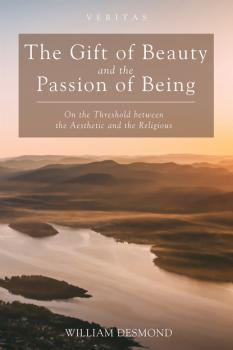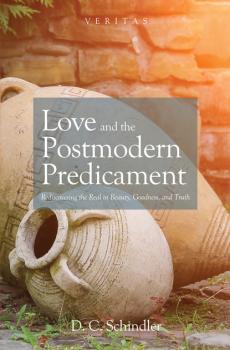ТОП просматриваемых книг сайта:
Философия
Различные книги в жанре Философия, доступные для чтения и скачиванияАннотация
How can one be a Christian in the world of business, not just on the weekend? How can one be honorable in business? Through the integration of the Christian worldview and business ethics, this book provides Christians with a mental framework with which to answer these important questions. Beginning with Genesis as the foundation for the Christian's worldview and the Ten Commandments as the outline for the Christian's ethical obligations, the authors develop principles upon which ethical choices can be made, even when working in a primarily non-Christian-oriented business environment. The book is designed to be helpful both to those beginning their career in business and those already employed in business who struggle with how to engage in today's business environment while maintaining their commitment to God's vision for life to be both meaningful and honorable. Topics of business ethics such as employee rights, discrimination, technology and privacy, insider trading and accounting fraud, and the special challenges of working internationally are covered. The added value this book brings to these discussions lies in its serious consideration of the Christian worldview as foundational to ethical decision-making in everyday areas of business.
Аннотация
This book offers an introductory review to a wide range of thinking, formulated over the last half-millennium in the Western world, about the meaning of human existence. It will touch on a variety of issues of contemporary significance, such as the origin and uniqueness of the human species, freedom and determinism, the nature of good and evil, and the possibilities and limits of the sciences. The book will supply a number of explanatory comments, from a Christian perspective, on the various views uncovered. Insofar as human beings are fascinated by exploring the reality of their own selves, in relation to history, culture, the natural environment, and a variety of worldviews, this book will afford readers plenty of material to stimulate them in their own exploration.
Аннотация
This book tells a compelling story about love, friendship, and the Divine that took over a thousand years to unfold. It argues that mind and feeling are intrinsically connected in the thought of Plato, Aristotle, and Plotinus; that Aristotle developed his theology and physics primarily from Plato's Symposium (from the «Greater» and «Lesser Mysteries» of Diotima-Socrates' speech); and that the Beautiful and the Good are not coincident classes, but irreducible Forms, and the loving ascent of the Symposium must be interpreted in the light of the Republic, as the later tradition up to Ficino saw. Against the view that Platonism is an escape from the ambiguities of ordinary experience or opposed to loving individuals for their own sakes, this book argues that Plato dramatizes the ambiguities of ordinary experience, confronts the possibility of failure, and bequeaths erotic models for the loving of individuals to later thought. Finally, it examines the Platonic-Aristotelian heritage on the Divine to discover whether God can love us back, and situates the dramatic development of this legacy in Plotinus, Iamblichus, Proclus, and Dionysius the Areopagite.
Аннотация
Higher education in the twenty-first century should bring together freedom and knowledge with courage and hope. Why these four concepts? As Goodson argues in Strength of Mind, higher education in the twenty-first century offers preparation for ordinary life. Freedom and knowledge serve as the conditions for cultivating courage and hope within one's ordinary life. More specifically, courage and hope ought to be understood as the virtues required for enjoying ordinary life. If college-educated citizens wish to hold onto the concepts of courage and hope, however, then both courage and hope need to be understood as intellectual virtues. As a moral virtue, courage has become outdated. As a theological virtue, hope violates the logic of the golden mean. Focusing on intellectual virtues also requires shifting from moral perfectionism to rational perfectionism. Rational perfectionism involves keeping impossible demands in view for oneself while constantly and continually striving for one's «unattained but attainable self.» Goodson defends these arguments by learning from the bits of wisdom found within American Transcendentalism (Emerson, Cavell), German Idealism (Kant, Hegel), Jewish philosophy (Maimonides, Spinoza, Putnam), neo-pragmatism (Putnam, Rorty, West), post-modern theories about pedagogy (Nietzsche, Foucault, Rorty), and secular accounts of perfectionism (Murdoch, Cavell).
Аннотация
This book gathers a set of reflections on the gift of beauty and the passion of being. There is something surprising about beauty that we receive and that moves the passion of being in us. The book takes issue with an ambiguous attitude to beauty among some who proclaim their advanced aesthetic authenticity. Beauty seems bland and lacks the more visceral thrill of the ugly, indeed the excremental. We crave what disrupts and provokes us, not what gives delight or even consoles. By contrast, attention is given to how beauty arouses enigmatic joy in us, and we enjoy an elemental rapport with it as other. Surprised by beauty, our breath is taken away, but we are more truly there with the beautiful when we are taken outside of ourselves. We are first receivers of the gift of surprise and only then perceivers and conceivers. My attention to the passion of being stresses a patience, a receptivity to what is other. What happens is not first our construction. There is something given, something awakening, something delighting, something energizing, something of invitation to transcendence. The theme is amplified in diverse reflections: on life and its transient beauty; on soul music and its relation to self; on the shine on things given in creation; on beauty and Schopenhauer's dark origin; on creativity and the dynamis in Paul Weiss's creative ventures; on redemption in Romanticism in the thought of Stanley Cavell; on theater as a between or metaxu; on redeeming laughter and its connection with the passion of being.
Аннотация
The culmination of a lifetime's preoccupation with crucial human concerns too often curiously marginalized by the history of philosophy, The Expansion of Metaphysics sheds new light on freedom and the will by making the phenomenon of novelty philosophically intelligible. The a priori synthesis of Kant is joined to Judeo-Christian themes (the kenosis of Christ in the incarnation and the tzimtzum of God in the creation) in order to develop a doctrine of «superabundance» (freedom and love) and «singularity» (with the Work of Art and the Child as paradigms). Space and time are reanalyzed as structural forms of human existence as Vető guides the reader into the depths and heights of reality, climaxing in a metaphysics of good and evil.
Аннотация
Memento mori–remember death–this is how the medieval monks exhort us. Our life, given in birth and taken by death, is radically marked by finitude, which can be a source of great fear and anguish. Our finitude, however, does not in itself need to be something negative. It confronts us with the question of our life's meaning and spurs us on to treasure our days. Our contingency, as evidenced in our birth and death, reminds us that we have not made ourselves and that there is nothing necessary about the marvelous fact that we exist. Particularly from a Judeo-Christian perspective, embracing our finitude will mean gratefully accepting life as a completely gratuitous gift and living one's days informed by a sense of this gratitude.
Аннотация
Does apologetic method matter? Helmut Thielicke argues that the method should conform to its own message. He thus rejects traditional apologetic methodologies beholden to supposedly neutral scientific and philosophical paradigms. Seeking to reform Christian conversation, Thielicke discovers a lost way of persuasion, that is, the table-turning approach found in Christ's conversations. Whenever Jesus is questioned, he seldom answers directly. For he refuses to allow the conversation to be framed by an autonomous mindset, and instead responds with a counterquestion. Christ's style of persuasion–as the controller of the question–subverts his hearers' presuppositions and challenges their unbelief. This approach is the reverse of the defensive, answer-giving mode of traditional apologetics. In view of renewing Christ's method, Thielicke insists that the task of apologetics is «something which is always on the offensive and, far from giving ready-made answers to the doubtful questions of men, turns the tables by putting questions on its own account–aggressive, violent, radical questions–and striking straight to the hearts of men.» Christian conversation must integrate Christ's method with his message in order to advocate the message itself. For it is not the world that questions Christ, but rather Christ questions the world.
Аннотация
The computer has increasingly become the principal model for the mind, which means our most basic experience of «reality» is as mediated through a screen, or stored in a cloud. As a result, we are losing a sense of the concrete and imposing presence of the real, and the fundamental claim it makes on us, a claim that Iris Murdoch once described as the essence of love. In response to this postmodern predicament, the present book aims to draw on the classical philosophical tradition in order to articulate a robust philosophical anthropology, and a new appreciation of the importance of the «transcendental properties» of being: beauty, goodness, and truth. The book begins with a reflection on the importance of metaphysics in our contemporary setting, and then presents the human person's relation to the world under the signs of the transcendentals: beauty is the gracious invitation into reality, goodness is the self-gift of freedom in response to this invitation, and truth is the consummation of our relation to the real in knowledge. The book culminates in an argument for why love is ultimately a matter of being, and why metaphysical reason in indispensable in faith.
Аннотация
This book examines the range of issues that echo in James Baldwin's short stories. It articulates and defends the claim that the stories in the collection Going to Meet the Man are driven by the autobiographical memory of the author. To support this line of thought and the related proposition that the stories feed into themes relevant to self-knowledge, vicarious suffering, love, and forgiveness, their effectiveness as transformative and «revelatory texts» is highlighted. By drawing on contemporary studies and challenging the view that short stories are no more than miniature pieces merely echoing «major» works of their authors, this book demonstrates that the short story genre can be profoundly forceful and effective in the articulation of complex human issues. This study shows also that the humanistic import of the Baldwin stories is amplified by their ability to accumulate moral tension as they elicit the participation of the reader in an imaginative quest for a better world.










